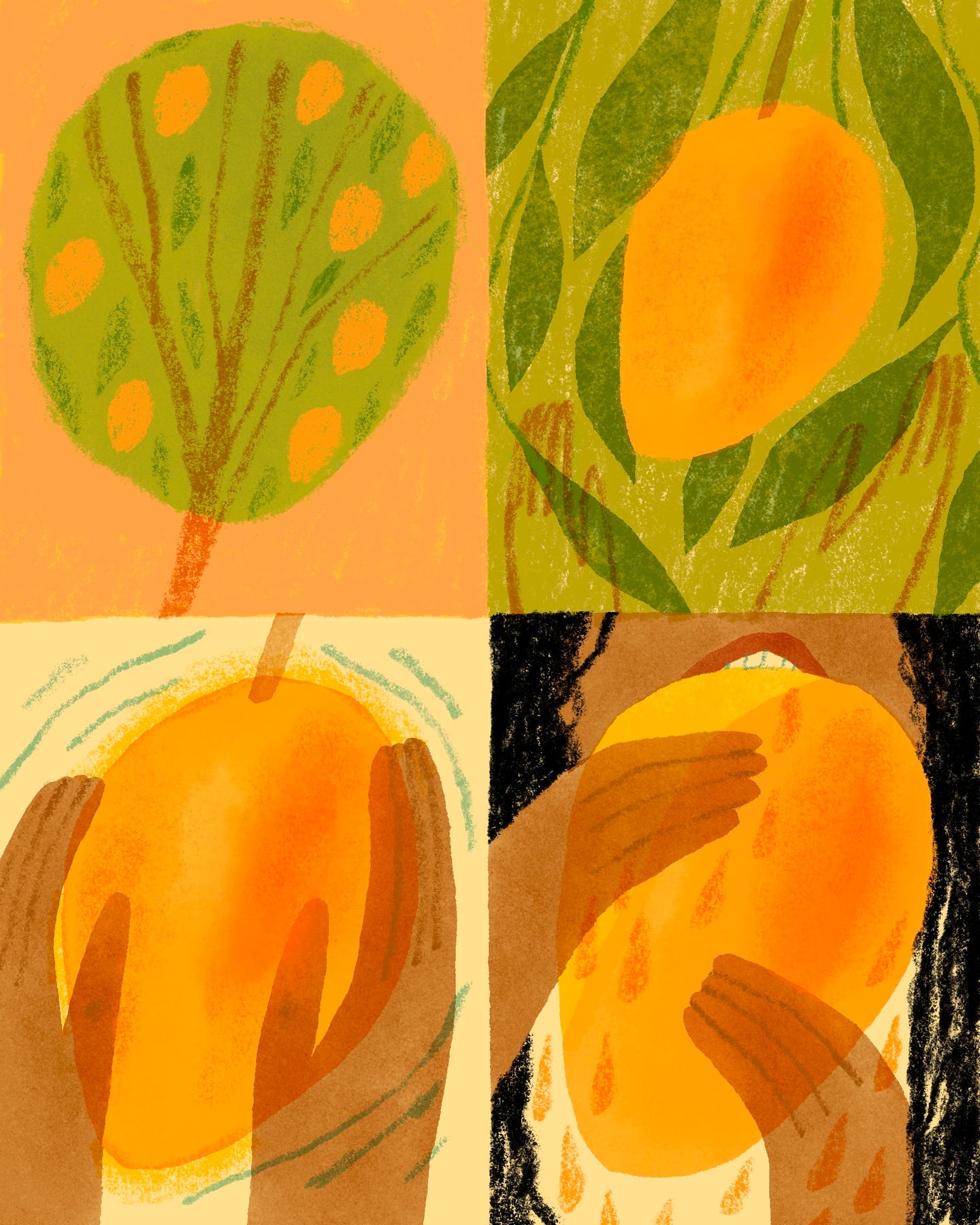
The great meals of our lives may be those we are not inclined to remember because they belong to the sameness of our lives. Like my father's refried beans with chorizo, that silky mash.
My father came home from work; he rolled up his sleeves; he stood at the stove. First, he fried the chorizo. After an interval of spit and crackle, he poured on the pinto beans. He mashed the beans with an aluminum potato masher that never left its drawer quietly. The beans were ready when my father banged the masher against the rim of the skillet. It was the only ceremony of our family life that he alone governed, entirely to his own taste.
My mother was romantic, changeable, inventive. She splashed a spoonful of sour cream atop my father's frijoles on her plate, for she loved to scoop up the cool and the warm together with a crust of French bread—torn, never sliced.
Whatever else my mother served—chicken marengo from a newspaper recipe, scrambled eggs with green beans, a pineapple and tomato salad, or her winter caldo scented with cilantro—my father's beans were always on the table. Thus did my father's reliability meet my mother's dash and wit.
My father had been an orphan in Mexico. After two years of grammar school, he went to work for an uncle who treated him like a servant. Those were years of political turmoil—an anti-Catholic government in the Catholic country. My father remembered seeing a dead priest hanging from a tree in the yard.
Mexico did not love my father. When he turned 19, he boarded a freighter bound for Australia. The ship docked in San Francisco for repairs. My father decided to look for work. He met my mother. The ship sailed away. They married, made four American children who were oblivious to tragedy. My father supported his family by making false teeth. For the rest of his life, he dreamed of the open Pacific.
A childhood, happy or unhappy, is constructed on an assumption that things will always be as they are—the stuffing of the Christmas turkey will be the same as "always," as last year. Family food is ritual, a binding spell. It is prayer, it is magic, it is superstition, it is tyranny. I would have noticed the refried beans only if they'd not been there.
I was too happy a child to wonder if my father's tragic youth had instilled in him a yearning for the repetition his children yearned to escape. Only now do I wonder how my father's work—eight hours of molars and bicuspids, long metal shelves lined with the mockery of false teeth—revolted or sweetened his appetite as he stood at the stove, the masher in his hand, dutiful priest, disappointed romantic. Disappointment! And now, that his son should write his eulogy as refried beans. My father was a brilliant man.
I have lived many years in San Francisco, where restaurant reviews are read religiously. The appetite for the new, the next, the best is a commendable cosmopolitanism, I suppose. But it was only because Marcel Proust's petite madeleine was unremarkable, because it tasted like every other madeleine, that it had the potency to recover the past.
It turned out that only my nephew Tom—my shy nephew who did not speak at the table—understood the taste of my father's refried beans. Years later, he opened a Mexican restaurant called Tacubaya, in Berkeley. One Saturday, I stopped in for a lunch of scrambled eggs and refried beans, and I tasted what I hadn't realized I yearned for. I tasted my father.
Keep Reading
Continue to Next Story










